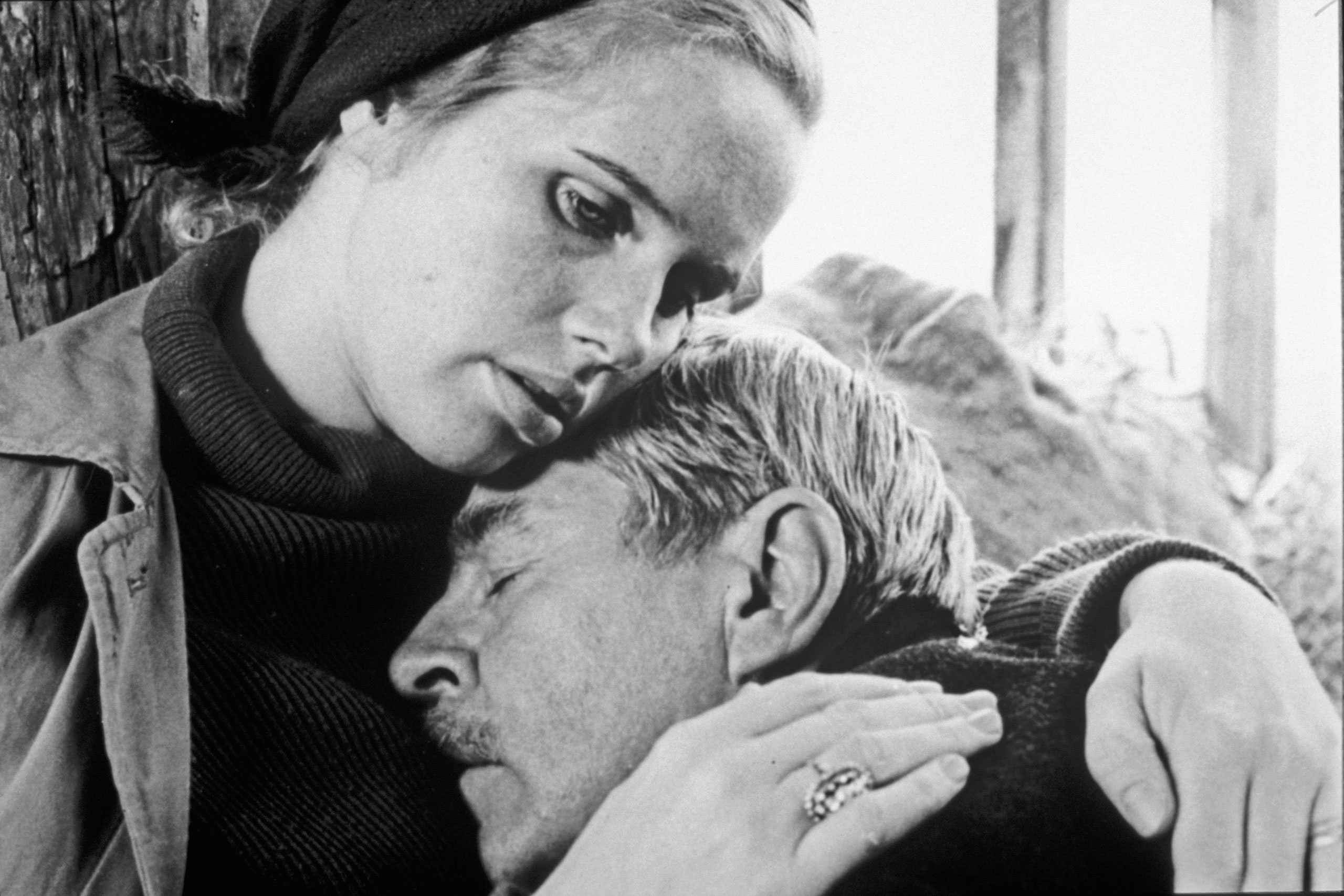The fictional civil war at the heart of Ingmar Bergman’s beautiful, somber masterpiece has no name, but it does have faces: those of Liv Ullman’s Eva, fresh as a haystack in sunshine, and Max von Sydow’s Jan, sturdy and thoughtful but with a twinge of scholarly absentmindedness. These two are a married couple living on a farm, scrounging to get by and doing their best to avoid the war raging around them—until avoidance becomes impossible. They’re captured, turned into pawns, but they’re also offered choices, and the moral compromises they make tear at the already frayed fabric of their marriage. Shame arrived as the world was fixated on the Vietnam War, and although Bergman claimed it wasn’t political, it’s a movie that fits easily into its time. But it’s also timeless, less an overt statement about events of the 1960s than an exploration of what can happen to humans when the dishonesty and brutality around them becomes too much to bear. The trick is that Bergman refuses to judge these characters. His tenderness toward them is infinite and resonant, like a caressing wind.
- Inside Elon Musk’s War on Washington
- Meet the 2025 Women of the Year
- The Harsh Truth About Disability Inclusion
- Why Do More Young Adults Have Cancer?
- Colman Domingo Leads With Radical Love
- How to Get Better at Doing Things Alone
- Cecily Strong on Goober the Clown
- Column: The Rise of America’s Broligarchy





